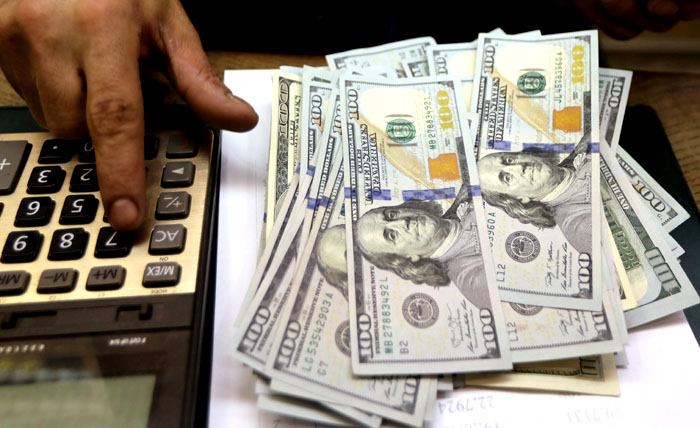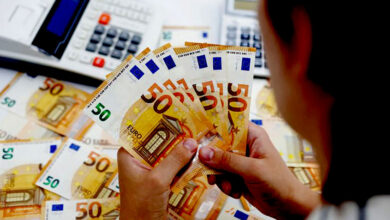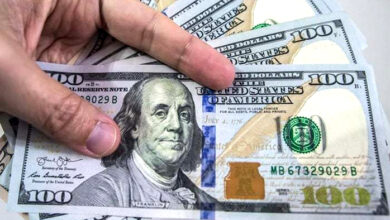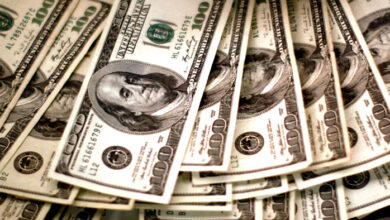The dollar declines; Eurozone inflation data is in the spotlight.

The U.S. dollar slipped lower in early European trade on Tuesday, retreating from a 20-year high, as focus shifted to Europe, with Eurozone inflation data on Wednesday likely signalling an aggressive ECB interest rate rise next month.
Related: The dollar declines, but investors’ flight to safety mitigates losses.
At 3:05 ET (07:05 GMT), the Dollar Index, which measures the greenback relative to a basket of six other currencies, was trading 0.1% down at 108.733, after falling from 109.48 overnight, a level not seen since September 2002.
The dollar rose at the end of last week as Federal Reserve Chairman Jerome Powell pledged to raise interest rates to manage inflation, even at the expense of economic growth.
This means that incoming economic statistics, and particularly Friday’s monthly nonfarm payrolls, will be closely analysed as investors attempt to determine if the central bank can manage an economic downturn without sparking a recession.
Before that, the Eurozone is set to release August CPI data on Wednesday. Annual inflation is expected to rise from 8.9% in July to 9.0% in August, which is above the ECB’s goal of 2%.
The report will undoubtedly increase the pressure on the ECB to quickly raise interest rates at its September meeting, despite the growing likelihood of a recession.
Related: Before Powell’s testimony, the dollar went up, and the U.K.’s CPI hit a 40-year high.
Isabel Schnabel, a member of the board of directors of the European Central Bank, admitted this over the weekend. She said that central banks risk losing public trust and must now act decisively to fight inflation, even if this puts their economies into recession.
Schnabel stated, “Even if we enter a recession, we have little alternative but to remain on the normalisation road.” If people’s expectations about inflation were to become less stable, the effect on the economy would be much worse.
The EUR/USD exchange rate increased to 0.9997 after gaining 0.3% on Monday, its largest gain in over three weeks.
GBP/USD rose 0.1% to 1.1721, having fallen to a two-and-a-half-year low of 1.1649 on Monday.USD/JPY declined 0.2% to 138.49 after surging above 139 overnight for the first time since mid-July. The risk-sensitive AUD/USD rose 0.1% to $0.6912.
Related: As the dollar reaches a two-decade high, frightened investors plump for a safe haven.
USD/CNY climbed 0.1% to 6.9149, with the pair nearing a two-year high, as China’s finance minister stated the country’s authorities will intensify steps to promote demand and stabilise employment and prices in the second half of the year, which might lead to a looser monetary policy.





